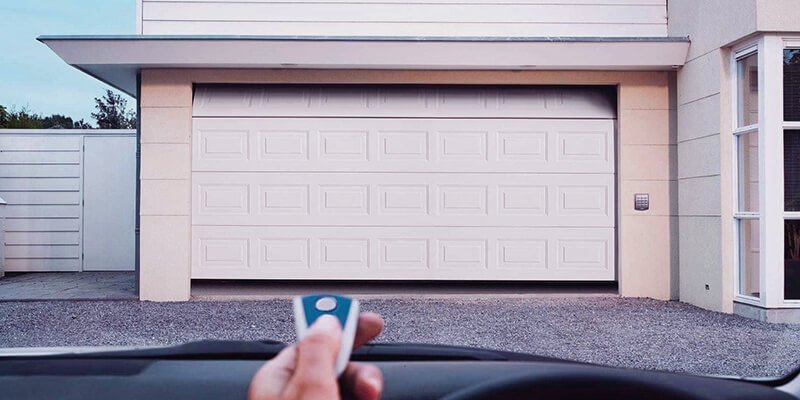A garage door that closes only to immediately open again can be frustrating—and sometimes even alarming. This kind of issue often happens suddenly and may seem like a major malfunction. But the truth is, it’s usually caused by something small that just needs the right attention.
Understanding the common causes of this behavior can help you troubleshoot the problem safely, or decide when it’s time to call in the pros. If you’re in San Antonio, TX, where seasonal changes and dust can affect your garage components, staying on top of maintenance becomes even more essential.
Let’s walk through the most likely reasons this is happening, what you can do about it, and when to reach out to a professional garage door repair company.
1. Misaligned or Blocked Safety Sensors
The most common reason your garage door starts to close and then reverses is an issue with the safety sensors, also known as photo-eye sensors. These are the small devices near the bottom of your garage door tracks. They create an invisible beam across the bottom of the door. If anything interrupts that beam—even dust or spider webs—the door will automatically reverse to prevent injury or damage.
Over time, these sensors can become misaligned or dirty, causing the system to think there’s an object in the door’s path when there isn’t. Even bright sunlight or reflective surfaces can sometimes trigger a false reading.
If your garage door won’t close and immediately reopens, one of the first things you should check is the cleanliness and alignment of these safety sensors.
2. Limit Switches May Need Adjustment
Every garage door opener has limit settings that tell it how far the door should travel when opening or closing. If these settings are off—even by a small amount—your opener might think the door has hit an obstruction or the ground before it actually has, causing it to reopen.
This is especially common in newer installations or if you’ve recently had your system serviced. It’s a subtle but critical calibration issue that can easily cause frustration.
In some cases, especially if you’ve noticed other recent malfunctions, it’s best to have your garage door opener inspected by a professional who can recalibrate the limits accurately and safely.
3. Broken or Failing Garage Door Springs
Torsion or extension springs provide the lifting power behind your garage door. When one of these springs becomes weak or breaks, your opener may struggle to complete the closing cycle. The door might begin to close but then immediately reverse as a built-in safety precaution.
This kind of issue is harder to identify at a glance, and trying to fix garage door springs yourself can be dangerous due to the high tension they’re under.
If your garage door is closing unevenly, making loud noises, or feels heavier than usual, the issue could lie with the springs.
A trusted garage door service like Prime Garage Door Repair in San Antonio has the expertise to safely replace or adjust springs without risk to your home or safety.
4. Obstructions or Debris on the Track
Even small items like leaves, gravel, or sticks can disrupt the operation of your garage door. When something prevents smooth motion along the track or interrupts the closing path, your system may trigger a reverse as a safety response.
Take a few moments to inspect the tracks on both sides of the door. Remove any visible debris and look for dents or misaligned sections that could be causing resistance.
Routine cleaning and track lubrication can also help prevent these issues before they happen.
5. Faulty Remote or Wall Control
Sometimes, the issue isn’t with the door or motor at all—it’s with the controls. If your remote or wall switch is sending mixed signals, the opener might interpret it as a command to reverse.
This could be due to a stuck button, low battery, or even interference from nearby devices. Try using a different control to see if the behavior changes. If your wall unit has a “lock” or “vacation” mode, make sure it’s not engaged.
6. Electrical or Wiring Issues
Finally, garage door openers are sensitive to power fluctuations or wiring problems. A short in the system, worn cables, or poor connections can cause the door to operate erratically—including reversing mid-close.
This is a less common issue but should not be ruled out—especially in older homes or if you’ve had recent electrical work done in the garage.
When to Call a Professional
If you’ve run through the basic checks—cleaned the sensors, removed debris, and tested your controls—and the issue persists, it’s time to bring in a certified technician.
Trying to fix deeper issues yourself can be risky. Your garage door is one of the heaviest moving parts in your home, and its components are under high tension.
Professional help ensures your door not only works properly but also remains safe for your family.
Why San Antonio Homeowners Trust Prime Garage Door Repair
For residents in San Antonio, TX, Prime Garage Door Repair is the go-to solution for fast, honest, and affordable service. Whether you’re dealing with a reversing door, worn-out springs, or a noisy opener, their team of trained professionals responds quickly and gets the job done right.
They’re known for their transparent pricing, expert repairs, and friendly service—something that’s increasingly rare in the home repair world.
Don’t let a malfunctioning garage door disrupt your day. Prime Garage Door Repair in San Antonio is just a call away and ready to restore your peace of mind.

